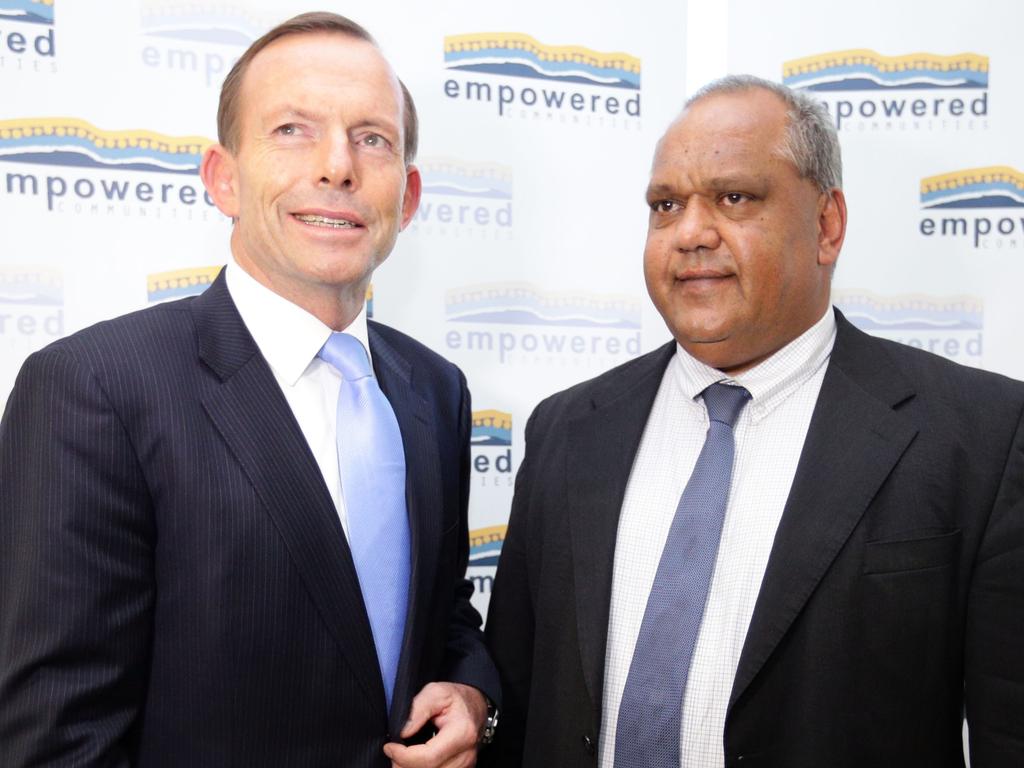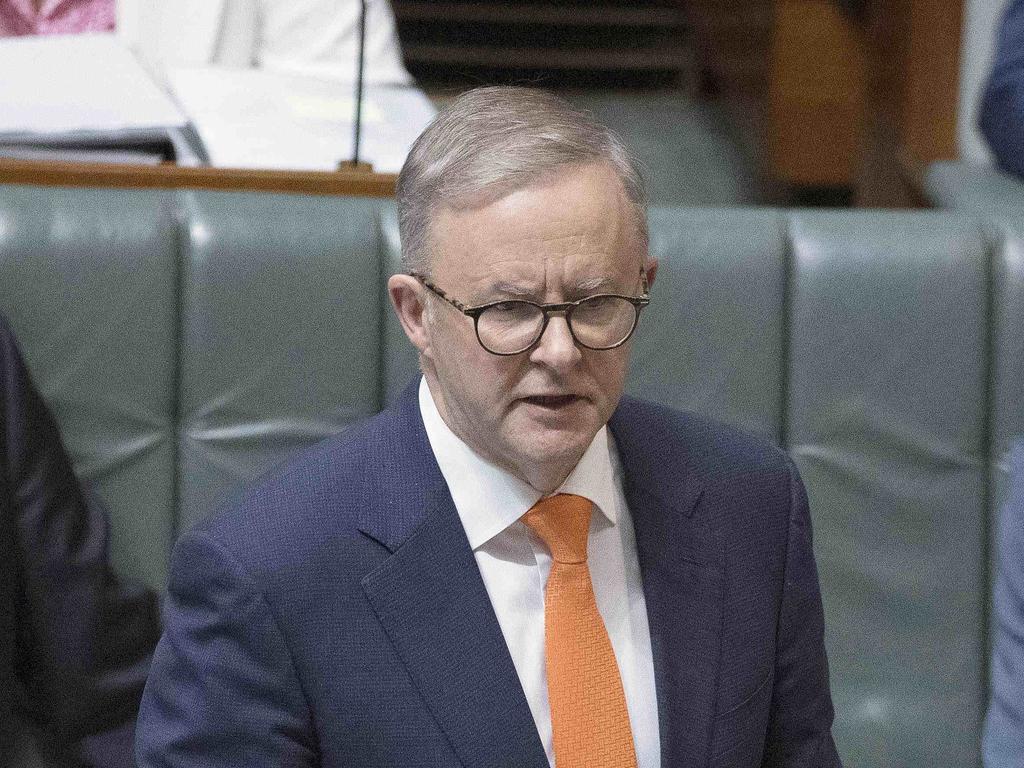Conviction not enough for PM on the voice


Albanese’s speech at Garma is historic. It has the potential to change our country. It launches a debate over how our executive, parliamentary and political system might evolve by the insertion of this Indigenous representative body into our Constitution.
While the Uluru statement referred to a “First Nations voice” and Albanese continues to use this language, it is not the language of the constitutional change. The words to be inserted into the Constitution call the body “the Aboriginal and Torres Strait Islander voice”. The title is changed from the Uluru statement where “First Nations” invoked the notion of sovereignty and referred to the “first sovereign nations of the Australian continent”. This change is sensible. The public will not confront putting the words “First Nations” into the Constitution. That was always an obstacle. The Prime Minister said the voice speaks to values “we all share and honour – fairness, respect, decency”. Yet the Australian people cannot be expected to vote in favour of a voice merely because of basic principle and recognition of Indigenous peoples.
They have a right to know, not every detail, but the fundamentals of the voice to assess its workability. Albanese has gone some way down this track. The key in his speech is the proposed second sentence to be inserted into the Constitution saying the voice “may make representations to parliament and the executive government on matters relating to Aboriginal and Torres Strait Islander peoples”.
This is open-ended, unqualified and unlimited. It means the voice can make representations to the parliament on bills, to the executive government on ministerial decisions, but is not limited to matters before the government or parliament. The voice can make representations on virtually anything or even initiate its own agendas.
Given this provision, it will be a brave and probably foolhardy parliament that tries to restrict the voice acting under the third sentence in Albanese’s constitutional provision where the parliament can make laws with respect to the “composition, functions, powers and procedures” of the voice.
There is no hint or suggestion from the Albanese government that the voice should be restricted in the ambit of its representations. From the outset, therefore, the expectation is the voice will have an extraordinarily wide scope. Given that Indigenous people are spread across every section of the Australian community, virtually every proposal before parliament and government will be “matters relating” to Indigenous peoples.
It appears, therefore, the voice would have scope to make representations on issues covering welfare, incarceration rates, justice, human rights, health, education, employment, the National Disability Insurance Scheme, violence and sexual abuse, Indigenous economic ownership, financial power, free speech and mining and energy, among other subjects.
It could also be expected, at some time, to address issues such as Indigenous recognition at public events, the date of Australia Day and foreign policy – given Foreign Minister Penny Wong has committed the government to “a First Nations approach to foreign policy” – while the voice would express views on how to proceed with a treaty and truth telling.
If this wide ambit is not the government’s vision it needs to speak up now. Albanese’s reluctance to provide detail beyond his weekend speech is untenable. That’s because it only helps the No case. The obvious mantra likely to sink the referendum would become: “If Albanese won’t trust you and tell you what the voice means, then vote No.” Indigenous Australians Minister Linda Burney is right in saying the detail must come before the referendum.
Albanese’s proposal seems to stand as a major departure from the 2017 Referendum Council report co-chaired by Pat Anderson and Mark Leibler that said of the voice: “It would not be realistic to provide advice on all matters ‘affecting’ Aboriginal and Torres Strait Islander peoples because most laws of general application affect such people.” Without clarification to the contrary, this seems exactly what Albanese intends.
The voice, moreover, cannot be separated from the wider Uluru statement since that statement had three elements – voice, treaty and truth telling. Respected Indigenous former ALP treasurer of Western Australia Ben Wyatt has written in The Australian Financial Review that a national settlement designed to strengthen Indigenous economic capacity would potentially involve a national compensation fund.
At some point the government will need to offer guidelines on the scope of the settlement it envisages, the legal ramifications of a treaty and possible financial implications in relation to any compensation considerations.
Albanese said embracing the voice is “good manners”. This is patronising of the Australian public. This proposal is about power. Everyone knows that and efforts to pretend otherwise are deceptive. The Uluru statement says the project is about “empowerment”. The idea is to put a new institution into the Constitution that cannot be removed by parliament and cannot be silenced. The purpose of the voice, sitting next to the House of Representatives and the Senate, is to shift the power balance in the political system and to shape and influence outcomes of the government and parliament.
If designed with democratic legitimacy its soft power would be immense. Can you imagine the media impact strong representations from the voice would generate – imagine the ABC coverage of a declaration from the voice.
Albanese knows this. When the ABC’s David Speers last Sunday asked, as an example, how a government would respond to the voice advising Northern Territory grog bans should be retained, Albanese said: “It would be a very brave government that said it shouldn’t.” Precisely. Albanese gave a realistic answer about the power the voice would mobilise – only a “brave” government would defy it. The voice would not be a third chamber but the media coverage would surely resemble that of a third chamber. It would have democratic and moral authority. Burney confirmed this on the ABC’s Q&A, saying the voice would tell the parliament “whether or not the parliament is getting it right”. That is, it would seek, by its advice, to correct or reverse the parliament.
This is going to change the way we are governed. Given their history, Indigenous people are completely justified in seeking more power through a voice – whether the Australian public consents to such a significant change in our governance is entirely another matter.
Pivotal to this are two core propositions: whether the public sees the voice as unifying or divisive and whether the public is prepared to have a race-based body inserted into the Constitution and playing an integral role in our governance and parliament.
It is, however, time to get real and end the sophistry. It is time for the bulk of the Australian media to stop pretending the voice is nothing more than a Sunday morning hymn session after church that nobody could dissent from. Aboriginal people see this in power terms and as the pathway to obtaining substantial policy changes.
Albanese has made clear he will not be diverted by lack of bipartisanship. He has chosen to lead and seeks to pressure the Coalition into following him while the model he champions will be extremely difficult for the Coalition parties to support in defiance of their newly elected Indigenous senator Jacinta Price, who opposes the voice.
Here’s the conundrum – if Albanese wants Coalition support he will need to offer concessions but he cannot offer concessions without betraying his Indigenous supporters.
Our referendum history is the story of prime ministers being defeated when totally convinced of the justice of their proposal. Albanese needs to beware the shadow of history.







Anthony Albanese has done the nation a service by outlining his proposal to enshrine a voice in the Australian Constitution – revealing a draft referendum question and, critically, the proposed three sentences to be inserted into the Constitution.